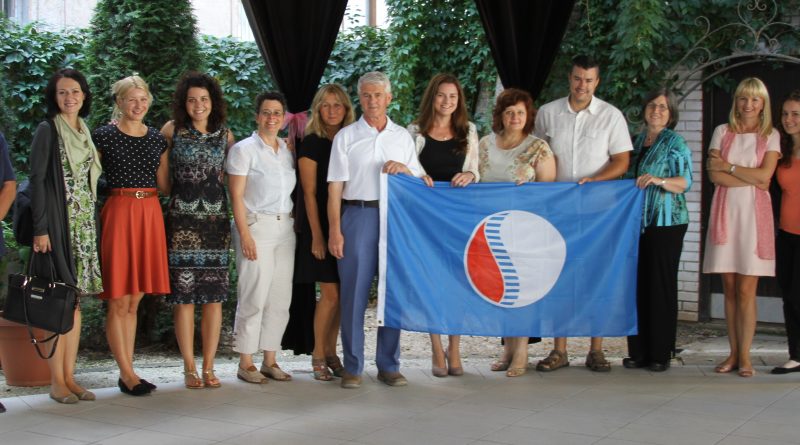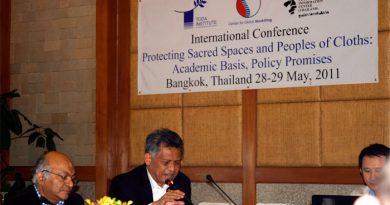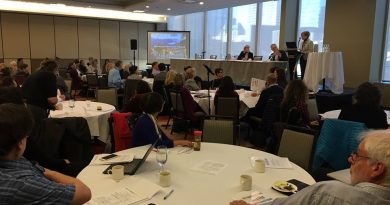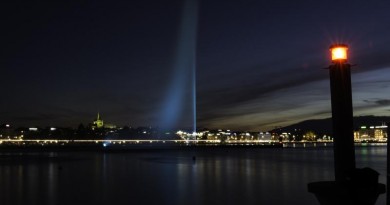Center for a Nonkilling Balkans to be established in Sarajevo
One of the outcomes of the August 28-29 Nonkilling Balkans Forum, held in Sarajevo, Bosnia and Herzegovina, is the decision to create in the near future a Center for a Nonkilling Balkans that can serve as focal point for activists, academics and civil society in the promotion of a nonkilling ethic based on the region’s cultures and history.
During the Forum participants from various countries and the global diaspora highlighted common nonkilling features of the Balkans past, such as the early Bogomil pacifist spirituality, pioneering centers for peace research such as Dubrobnik’s Interuniversity Center or the Institute for the Philosophy of Science and Peace, and a diversity of peace and antiwar organizations such as the Mirovni Institut or the Center for Antiwar Action.
A consensus was reached on the need to build a more permanent structure to carry on with this work, serving both as an advocacy organization to foster these values, especially in the educational arena, and as a Nonkilling Observatory for the Balkans region that can map and keep track of efforts to prevent and reduce potentially lethal violence and monitor and analyze instances of killing. Such an organization will be established through the mandate of a “Sarajevo Declaration for a Nonkilling Balkans” that will be issued shortly, with an additional set of policy, research and education recommendations.
The Forum organizers an participants will share the draft Declaration with other organizations and movements that will be invited to join this effort from the start. In particular, concern was expressed regarding the need to share this nonkilling approach with those involved in the 2014 Bosnian Spring protests and assembly gatherings providing insights on nonviolent strategies for political action, through other examples from the Balkans region (such as Otpor!) and elsewhere.
A collective book under the title “Nonkilling Balkans” will also follow this Forum, including the presentations of participants: Sanja Garić (British Columbia Institute of Technology), Tjaša Ribizel (University of Ljubljana), Mirna Marković Pavlović, Sabina Alispahić and Amela Dautbegović (University of Sarajevo), Ingrida Grigaitytë (Abo Akedemi University), Shelley Hymel (University of British Columbia), Eveline Gutzwiller-Helfenfinger (University of Teacher Education Lucerne ), Rifet Bahtijaragić (NKBF) and Joám Evans Pim (CGNK). Other scholars will be invited to submitt additional contributions.
The Forum received wide media attention, including a special program on FACE TV station on the previous day, and guests from the University of Sarajevo and various community organizations, including the Mayor of Bosanski Petrovac, that joined the Nonkilling Communities Flag Program, also joined the participants during the two-days of debate marking the symbolical moment a century after the beginning of the First World War and two decades after the end of the bloodiest war in Europe since World War II.
The Center for Global Nonkilling would like to extend its gratitute to those who helped in the organization of the Nonkilling Balkans Forum: Miro Karamehmedović, Branko Tomić, Milenko Mišo Marić, Miro Sirovina, Minko Bahtijaragić Bach, Nerma Bahtijaragić, Alma Omeragić and Bill Hoopes.
FACE TV interview translation
0:00 Anchor:
Good afternoon, we have our first afternoon guests in the studio. Their names are Mr. Rifet Bahtijaragic and Mr. Evans Pim, Director of the Nonkilling Centre.
0:15 Rifet:
Good afternoon
0.26: Anchor
Thank you for coming to our TV studio this afternoon and for introducing us to the work of your organization.
0.26 Rifet:
Thank you for inviting us, it is our pleasure to be guests in your TV show, especially because this FACE TV station is known worldwide for its progressive attitude, and what we do within our Nonkilling Balkans Forum and Centre for Global Nonkilling is, I believe, also very progressive. We are talking here about the new science in the field of Philosophy, Psychology, Sociology and Political Sciences and it is about Nonkilling. In our recent history we have always been annotating dates of something related to rebellions and wars, but now we are hoping to introduce a new science that will teach us on how to upgrade our minds in order to avoid violence and killing of people while solving disputes and conflicts.
We are talking here about the science that needs to be incorporated in curriculum of modern schools and universities in Bosnia and Herzegovina, the Balkans and worldwide. There are many countries in the world that have already started to introduce this new science of Nonkilling, but we are introducing it the Balkans for the first time today.
Yesterday we have visited Bosanski Petrovac – the first region in the world which decided to take a pledge, in front of their children and in front of the whole world, a pledge against killing of human beings and for protection of future generation against killing.
Tomorrow and a day after tomorrow we will hold here in Sarajevo a International symposium Nonkilling Balkans Exploratory Forum and participants will be scientist and humanists who will present their scientific works about Nonkilling. Some of them have studied the situation in the Balkans and they are going to present results of their researches in these scientific works and their opinions how people of Balkans can start to change culture of killing and in their mind incorporate ethic and culture of Nonkilling.
The group of professionals from the University of Philosophy will also present their research, because they were born here, they know a lot about mentality, traditions and cultures of people from this region of the world and they have been in touch with this new science before.
7.35 Anchor:
Mr. Rifet, you live in Canada for many years and in last time you started a collaboration with worldwide scientists and humanists who want to work in Balkans and in Bosnia with reference to this issue. And you have also mentioned close cooperation with Balkan universities, University of Philosophy in Sarajevo, for example, so can you tell us something about their response.
7.53 Rifet:
The main goal of this symposium is for scientists to be given a chance to express their own opinions on best possible options for implementation of Nonkilling science within our schools and how to educate people on how to change their way of thinking, in order to stop using violence and killings in solving conflicts and disputes, but resolving conflicts by humane means. And there is a whole spectre of peaceful and humane solutions – much more than violent options.
Talking about our initiatives and ideas, I can tell you that all this started rather recently, when we initiated contacts with many universities in the Balkans, and they mostly welcomed this new science. It will take some times for Balkans universities, including this in Sarajevo, Faculty of Philosophy and Faculty of Political Sciences, to organize Nonkilling courses or, which would be even better, to establish Nonkilling Departments within their schools. I think that is the most important activity in this very moment.
Another thing that needs to be done is to establish cooperation with ministries of education and university authorities to organize a presentation of Nonkilling science in schools, workshops, quiz competitions and the other ways of competition in Nonkilling knowledge.
11.09 Anchor:
Mr. Rifet, prior to your coming to the studio, you have mentioned that you expect this forum to reverberate and to cause good reaction in Balkans and with Bosnia and Herzegovina general public, especially with young people .
11.31 Rifet:
I am sure that forum will provoke good reactions. I have been born and raised in the Balkans, I know these people and I know that people here are sometimes capable for making bad thinks, but we are much more capable for good deeds. We had proved it many times in our past. And I am very positive that Balkans people have capabilities to start in third millennium with decision to provide to future generations the right to live, not to be killed. We also have to teach them about their responsibility not to kill anybody ever. I believe It is natural thinking of every intelligent human being. To behave like that. And it is a personal decision.
16.39 Anchor:
And now, Mr. Rifet, before we invite other members of Nonkilling Centre and Forum, tell me something about participation on the Forum, how and whom to invite to participate the Forum.
16.56 Rifet:
This TV presentation that you have made for us is very much, what Face TV has done for us, is of an extreme importance and assistance in order for this science to be implanted in minds of people, in order for them to start thinking differently, start to erase violence and killing ways from our brains and implant fundamental paradigm of Nonkilling Philosophy in our culture.
The participation in the Forum tomorrow, apart from people who have prepared their scientific presentations, can be taken by anyone. We have already sent invitations to all relevant universities in the Balkans, especially to those in Sarajevo who should participate, and therefore we hope to have participation of professors and students from the Faculty of Political Sciences and Faculty of Philosophy. The conference is open for everyone. We would appreciate your presence and presence of other media, because we expect to have some vivid discussions and exchange of opinions and attitudes which is going to be very interesting for your viewers.
17.59 Anchor
Thank you very much for being our guest. In the continuation of our TV programme we will continue this conversation with other representatives from the Centre and hope to see you tomorrow on Forum in Hotel Bosnia.
18.10 Rifet
Thank you very much.
18.13 Anchor
Dear viewers, stay with us because we will make a short break after which we will continue talking about the Forum




